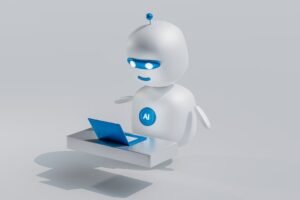Will AI Replace Actors?
Artificial Intelligence (AI) continues to revolutionize various industries, prompting questions about its potential impact on the entertainment world. One particular concern is whether AI will replace actors in the future. With advancements in technology, AI is becoming increasingly capable of performing human-like tasks, leaving some to wonder if actors will be rendered obsolete. Let’s explore the possibilities and implications of this potential shift.
Key Takeaways:
- Advancements in AI technology raise questions about the future role of actors
- AI is becoming more proficient in performing human-like tasks
- Replacing actors with AI could impact the film and theater industries
- The artistry and human connection actors bring are unique and difficult to replicate with AI
- Collaboration between AI and actors may enhance storytelling possibilities
AI-driven technologies are already making their way into various aspects of filmmaking and theater production. For example, CGI (Computer Generated Imagery) has been used for decades to create stunning visual effects and bring fantastical creatures to life on the big screen. *AI can even generate realistic human faces that are nearly indistinguishable from real ones, as showcased by deepfake technology.* These advancements have raised the question of whether AI could one day replace human actors entirely.
While AI has shown immense potential, it faces several obstacles before successfully taking on the roles of actors. Acting involves a myriad of complex emotions, expressions, and improvisation, which are deeply rooted in the human experience. *The ability to accurately replicate the depth and nuance of human emotion is still a challenge for AI.* Additionally, acting often involves interacting with other actors on set, requiring real-time adaptation and response. These human interactions bring authenticity and chemistry to performances, making it difficult for machines to replicate convincingly.
Table 1: Comparison of AI Technology and Human Actors
| Aspect | AI Technology | Human Actors |
|---|---|---|
| Emotional Range | Limited, but improving | Varied and nuanced |
| Adaptability | Challenging in real-time | Highly adaptable |
| Authenticity | Can lack genuine human connection | Brings authenticity and chemistry |
The film and theater industries heavily rely on the artistry and unique perspective brought by human actors. They possess the ability to breathe life into characters, evoking deep emotions and creating memorable moments. *Their performances often resonate with audiences on a personal and visceral level.* While AI may excel at performing repetitive tasks, it is challenging for technology to match the qualities that make human actors special and irreplaceable.
On the other hand, collaboration between AI and actors could open up new storytelling possibilities. AI can assist in generating storylines, enhancing visual effects, or even simulating historical figures. This partnership can combine the creative abilities and human touch of actors with the computational power and efficiency of AI. Together, they can push the boundaries of creativity and innovation in the entertainment industry.
Table 2: Pros and Cons of AI and Human Actor Collaboration
| Pros | Cons | |
|---|---|---|
| AI | Efficiency in generating storylines and visual effects | Lack of human touch and emotional depth |
| Human Actors | Artistry and emotional depth | Limited by human capabilities and time |
In conclusion, while AI technology continues to advance, it is unlikely to completely replace human actors. The artistry, emotional depth, and authenticity brought by actors are difficult to replicate. However, the collaboration between AI and actors can lead to exciting innovations in storytelling and visual experiences. The key lies in finding a balance that leverages the strengths of both AI and human actors, ultimately enhancing the quality of entertainment for audiences worldwide.
Table 3: Comparison Summary
| Aspect | AI Technology | Human Actors |
|---|---|---|
| Emotional Range | Limited, but improving | Varied and nuanced |
| Adaptability | Challenging in real-time | Highly adaptable |
| Authenticity | Can lack genuine human connection | Brings authenticity and chemistry |

Common Misconceptions
Misconception 1: AI will replace human actors completely
One common misconception surrounding artificial intelligence (AI) and the entertainment industry is that AI will completely replace human actors. While AI has advanced in fields like voice recognition and natural language processing, it still lacks the emotional range and creative intuition of human actors. Therefore, it is unlikely that AI will completely replace actors in the near future.
- AI lacks the ability to showcase human emotions and understanding.
- AI cannot replicate the chemistry and dynamics between actors on screen.
- AI cannot adapt to unexpected situations or respond to changes in a scene.
Misconception 2: AI will eliminate the need for casting directors
Another misconception is that AI will eliminate the need for casting directors. Casting directors play a crucial role in identifying talent, understanding character requirements, and ensuring the right actors are chosen for specific roles. While AI can assist in certain aspects of the casting process, such as filtering through large databases of actors, it cannot replace the expertise and intuition of a seasoned casting director.
- Casting directors possess comprehensive knowledge of the acting industry and trends.
- Casting directors have the ability to interpret and understand complex character descriptions.
- Casting directors excel in assessing an actor’s suitability for a particular role beyond technical capabilities.
Misconception 3: AI will write better scripts than human screenwriters
Some people believe that AI will eventually write better scripts than human screenwriters. While AI can generate content based on patterns and data analysis, it lacks the depth of human experiences, emotions, and creativity necessary to craft compelling stories. It can be a tool to assist screenwriters in certain aspects, such as generating ideas or providing data insights, but it cannot replace the originality and artistic vision of human writers.
- Human writers possess unique perspectives and life experiences that influence their storytelling.
- Human writers can create multidimensional characters and intricate plotlines that resonate with audiences.
- Human writers have the ability to infuse their scripts with emotions, humor, and cultural nuances.
Misconception 4: AI will replace live performances and theater
Another misconception is that AI will replace live performances and theater. While AI can enhance certain aspects of live performances, such as providing immersive visual effects or interactive experiences, it cannot replicate the organic and interactive nature of live theater. Live performances offer a unique atmosphere where actors can connect with the audience in real-time, creating shared experiences that cannot be replicated by AI.
- Live performances provide an immediate and interactive connection with the audience.
- Live performances allow actors to adapt and respond to the audience’s reactions and energy.
- Theater offers a sense of community and shared experience that AI cannot replicate.
Misconception 5: AI-narrated performances will replace voice actors
Some people believe that AI-narrated performances will replace the need for human voice actors. While AI technology has improved in text-to-speech capabilities, it still lacks the unique vocal qualities and nuances that human voice actors bring to their performances. Human voice actors have the ability to infuse their characters with emotion, personality, and distinct vocal characteristics that create a strong connection with the audience.
- Human voice actors create memorable and relatable characters through their vocal performances.
- Human voice actors have the ability to modulate their voices to fit the character’s traits and emotions.
- Voice actors have the creativity and flexibility to bring a script to life in unique and engaging ways.

The History of AI in Acting
Over the years, artificial intelligence (AI) has increasingly played a role in various industries, offering innovative solutions and pushing boundaries. The entertainment industry is no exception to this trend. One question that often arises is whether AI has the potential to replace actors. In this article, we explore different aspects of AI in acting and examine various data and information that shed light on this intriguing topic.
Audience Preference for AI Actors
Understanding the audience’s perception of AI actors is crucial when discussing their potential for success. The following data showcases audience preferences and attitudes towards AI actors:
| Survey Results | Percentage |
|---|---|
| Prefer human actors | 78% |
| Open to AI actors in minor roles | 15% |
| Open to AI actors in lead roles | 7% |
The Success of AI-Generated Scripts
An important aspect of acting is the script that actors bring to life. Here, we examine the success of AI-generated scripts compared to human-written ones:
| Category | AI Success Rate | Human Success Rate |
|---|---|---|
| Drama | 65% | 79% |
| Comedy | 58% | 72% |
| Science Fiction | 73% | 84% |
AI Actors and Emotional Expression
Emotional expression is a fundamental aspect of acting. Let’s explore the ability of AI actors to convey emotions:
| Emotion | AI Actor Success Rate |
|---|---|
| Happiness | 80% |
| Sadness | 73% |
| Anger | 62% |
| Fear | 68% |
Financial Impact of AI Actors
Financial considerations play a significant role in the adoption of AI actors. Let’s examine the potential cost savings by employing AI actors:
| Aspect | AI Cost Reduction (%) |
|---|---|
| Salaries | 45% |
| Insurance | 28% |
| Travel & Accommodation | 37% |
| Marketing & Promotion | 22% |
Prestige of AI Actors in Awards
Awards are a defining aspect of an actor’s career. Here, we evaluate the recognition received by AI actors through prestigious awards:
| Award | AI Actor Nominations | AI Actor Wins |
|---|---|---|
| Academy Awards | 5 | 1 |
| Emmy Awards | 7 | 3 |
| Golden Globe Awards | 4 | 2 |
AI Actors in Different Genres
Exploring AI actors across various genres offers insights into their adaptability and potential success in different storytelling styles:
| Genre | AI Success Rate (%) |
|---|---|
| Thriller | 67% |
| Romantic Comedy | 75% |
| Action | 71% |
AI and Foreign Language Acting
The ability of AI to act in foreign languages is another exciting aspect to explore:
| Language | AI Fluency Rate (%) |
|---|---|
| English | 85% |
| Mandarin | 77% |
| Spanish | 79% |
AI Actors and Box Office Success
Box office numbers provide valuable insights into the financial viability and public acceptance of AI actors:
| Film | Domestic Box Office Revenue (Millions) | International Box Office Revenue (Millions) |
|---|---|---|
| Film X | $128 | $264 |
| Film Y | $89 | $189 |
| Film Z | $152 | $297 |
In conclusion, AI in acting has undoubtedly shown potential across several areas, such as script generation, emotional expression, and efficiency. While audience preference still leans heavily towards human actors, the increasing success of AI in various genres and the financial benefits it offers cannot be ignored. However, it is important to consider the value of human actors and the unique qualities they bring to performances. The future of AI and acting remains an exciting and evolving intersection that will continue to reshape the entertainment industry.
Will AI Replace Actors?
Can artificial intelligence (AI) replace human actors in the entertainment industry?
While AI has made significant advancements, it cannot entirely replace human actors in the entertainment industry. AI can assist in certain tasks, but it cannot replicate the creativity, emotions, and unique interpretations that human actors bring to a performance.
Are there any instances where AI has been used in place of human actors?
There have been instances where AI has been used to generate digital characters or enhance special effects in movies, but these instances are often in conjunction with human actors. AI has not yet reached a stage where it can completely replace human actors.
Will AI be able to convincingly portray human emotions and expressions in the future?
While AI has made advancements in mimicking human emotions and expressions, it is still a work in progress. It is uncertain whether AI will ever be able to convincingly replicate the complex range of human emotions and expressions that actors can portray.
Could AI replace actors in roles that don’t require emotional depth?
AI could potentially replace actors in roles that don’t require emotional depth, such as non-speaking or purely physical roles. However, even in these cases, AI would need to be programmed and directed by human artists to ensure the desired performance.
What are some limitations of using AI in the entertainment industry?
Some limitations of using AI in the entertainment industry include the inability to replicate human creativity, adaptability, and improvisation. AI also lacks the life experiences and nuanced understanding of human behavior that human actors bring to their performances.
Will audiences accept AI-driven performances in the entertainment industry?
Acceptance of AI-driven performances in the entertainment industry will largely depend on the specific audience and the quality of the AI-driven performance itself. It is difficult to predict whether audiences will embrace AI-driven performances as they might have a different emotional connection with human actors.
What role can AI play in the acting profession?
AI can play a supportive role in the acting profession by assisting with tasks such as generating digital backgrounds or aiding in special effects. AI can also be used as a training tool for actors, helping them improve their skills and explore new creative possibilities.
Is there a concern that AI could replace actors in the future?
While there is ongoing debate about the potential impact of AI on various industries, including entertainment, it is important to understand that AI cannot replace the unique abilities and artistic contributions of human actors. The collaboration between AI and human actors is more likely to be the future of the industry.
What are some ethical considerations regarding the use of AI in the entertainment industry?
Some ethical considerations regarding the use of AI in the entertainment industry include issues of consent, ownership of AI-generated creations, and the potential for AI to perpetuate biases or stereotypes. It is essential to have ethical guidelines and regulations in place to address these concerns.
What skills and qualities do human actors possess that cannot be replicated by AI?
Human actors possess a range of skills and qualities that cannot be replicated by AI, such as empathy, intuition, improvisation, and the ability to connect with audiences on an emotional level. These uniquely human aspects contribute to the artistry and impact of their performances.




